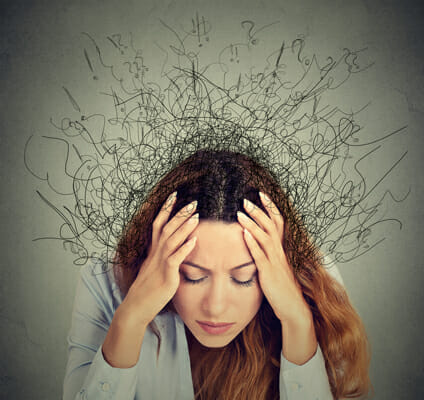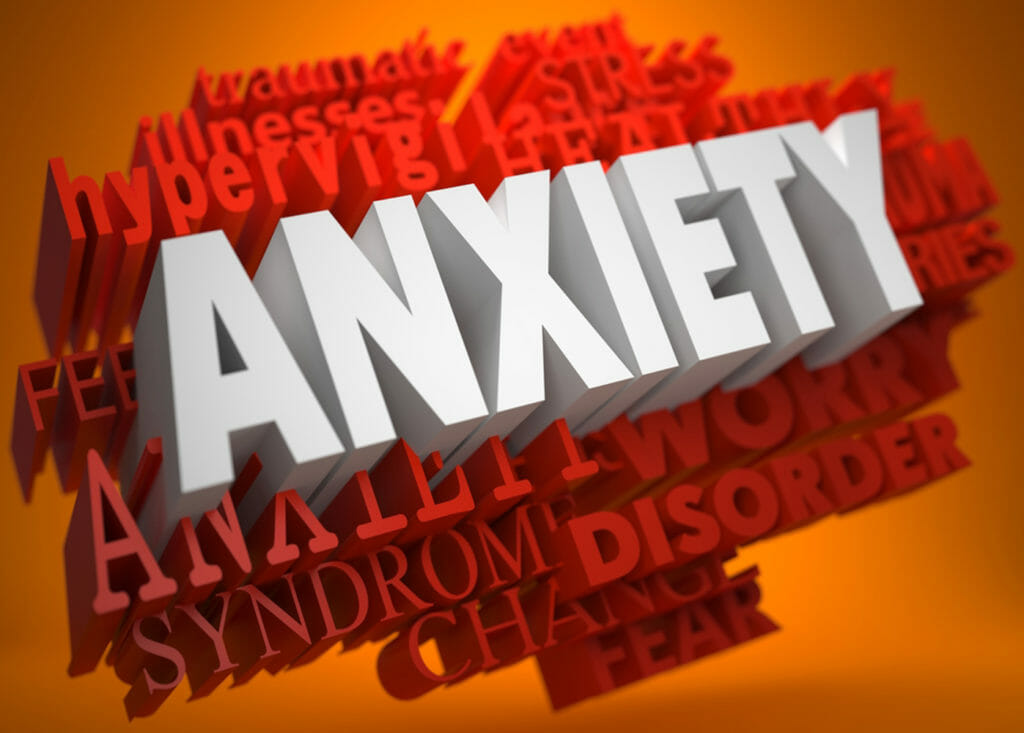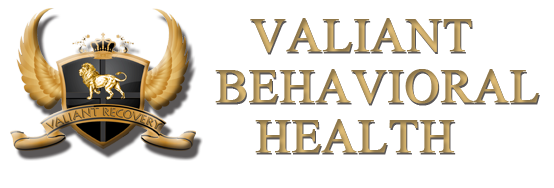Mental illness is defined as an illness characterized by alterations in mood, thinking, or behavior, according to the Public Health Agency of Canada. Specific examples of mental illnesses include major depression, bipolar disorder, schizophrenia, personality disorders and several others, including anxiety.
What is anxiety?
Anxiety is defined as “an emotion characterized by feelings of tension, worried thoughts and physical changes like increased blood pressure,” according to the American Psychological Association (APA).

Anxiety is often a normal and healthy emotion. Maybe you were preparing for a big sports game and you felt the butterflies in your stomach as you thought about how much you wanted to win. Or, maybe you knew you had a big test coming up and you felt a little nervousness and anticipation because you felt unprepared.
This type of anxiety is normal and happens when we have things coming up that we are excited or nervous about, or even dreading. However, anxiety can escalate to a point when a person regularly feels disproportionate levels of anxiety. At this point, the anxiety is a medical disorder and is classified as a mental illness.
Normal levels of anxiety might cause physical symptoms and might be vague and unsettling, but severe anxiety might seriously impact your day-to-day living.
Understanding the difference between a normal level of anxiety and a disproportionate level is often helpful in identifying and treating the disorder.
Statistics
You might be wondering to yourself, how many people actually deal with an escalated level of anxiety? Am I the only one who actually experiences it to the point that it is a disorder?
The answer is, no. You are not alone.
According to statistics, it is estimated that 1 in 5 Canadians will experience a mental illness throughout their lifetime. And according to the Anxiety Disorders Association of Canada, “the 12-month prevalence for any anxiety disorder is over 12 percent and one in four Canadians will have at least one anxiety disorder in their lifetime.”
In fact, in 2013, an estimated 3 million Canadians aged 18 years old or older reported having a mood and/or anxiety disorder.
Of all mental disorders, mood and anxiety disorders are among the most common types in Canada and majorly affect the daily lives of those who suffer from them.
The relationship between anxiety and addiction
Anxiety can quickly take a toll on your body – mentally and physically. This constant feeling of stress, worry and other emotions can lead someone to looking for an outlet.
The attractiveness of addiction comes when someone suffering from anxiety experiences some relief of their anxiety from either drugs or alcohol. The deep desire to no longer feel that anxious feeling, but to feel the peace and freedom they think they found through addiction can lead to problems.

However, the truth is that while drugs and alcohol might seem like it can cure the anxiety from the outside, the grip of addiction is really only feeding it. Substance abuse might temporarily mask the problem, but it does not cure it.
Consider this, if you were to develop an addiction as a result of anxiety you would then find yourself in the midst of a dual diagnosis. This would require treatment for both anxiety and addiction – which could be incredibly overwhelming.
The process of addiction recovery brings about anxiety of its own. If you have anxiety, work on finding healthy ways of overcoming it rather than turning to addiction.
How do I deal with anxiety?
Like most other mental illnesses, there is the option of taking medication to help you deal with anxiety. But before trying medication, we would recommend trying other, natural ways to deal with your anxiety – it might work best for you after all.

Here are a few healthy, easy and natural ways to deal with anxiety – from a normal level to an escalated level:
Eat a well-balanced meal.
Our hormones play a very vital role in our mental health – and an imbalance can impact the level or vulnerability we have for things like anxiety.
Simply watching what you at and eating a well-balanced meal as often a possible can have a positive impact on your mood and therefore on your anxiety. When you feel better physically, you will often feel better emotionally, too.
Get outside.
Just like eating a well-balanced meal can positively impact our mental health, so can just a little vitamin D, or sunshine. Getting outside has been proven to positively impact depression and anxiety.
Breathing fresh air, feeling the grass beneath your feet, feeling the warmth of the sun on your skin – all of this plays a role in uplifting your mood.
If you are able, try getting a little exercise while you are outside. Just a simple walk around the block or riding a bike is a great way to release dopamine, which is a hormone that makes you feel good. So not only can exercise help relieve anxiety, but it can also bring about more positive feelings – which is a much healthier alternate to addiction.
Get involved.
Having something else to focus that anxious energy into can make a difference. Find something you are passionate about and direct your anxious behaviors toward it, in a healthy manner. You will find that you are relieving the anxiety and also feeling success as you make an impact in something that matters to you.
Talk to someone.
Have you ever heard that asking for help doesn’t make you weak, but it actually makes you strong?
It takes great strength to accept that you cannot do something on your own and that you need someone to help you get to where you are supposed to be.
If you find yourself struggling with anxiety and/or addiction, reach out for help. It can make all the difference.
Conclusion
Life happens. Mental illnesses happen. But, they do not have to lead to addiction and they do not have to control your life.
Reach out for help before it gets too late. You have the opportunity to take the wheel and handle your illness in a healthy way.
Aside from these at-home treatments, we are also here to offer you help, guidance and support. Let our qualified staff help you find a life free of addiction. We are ready to help you succeed.


